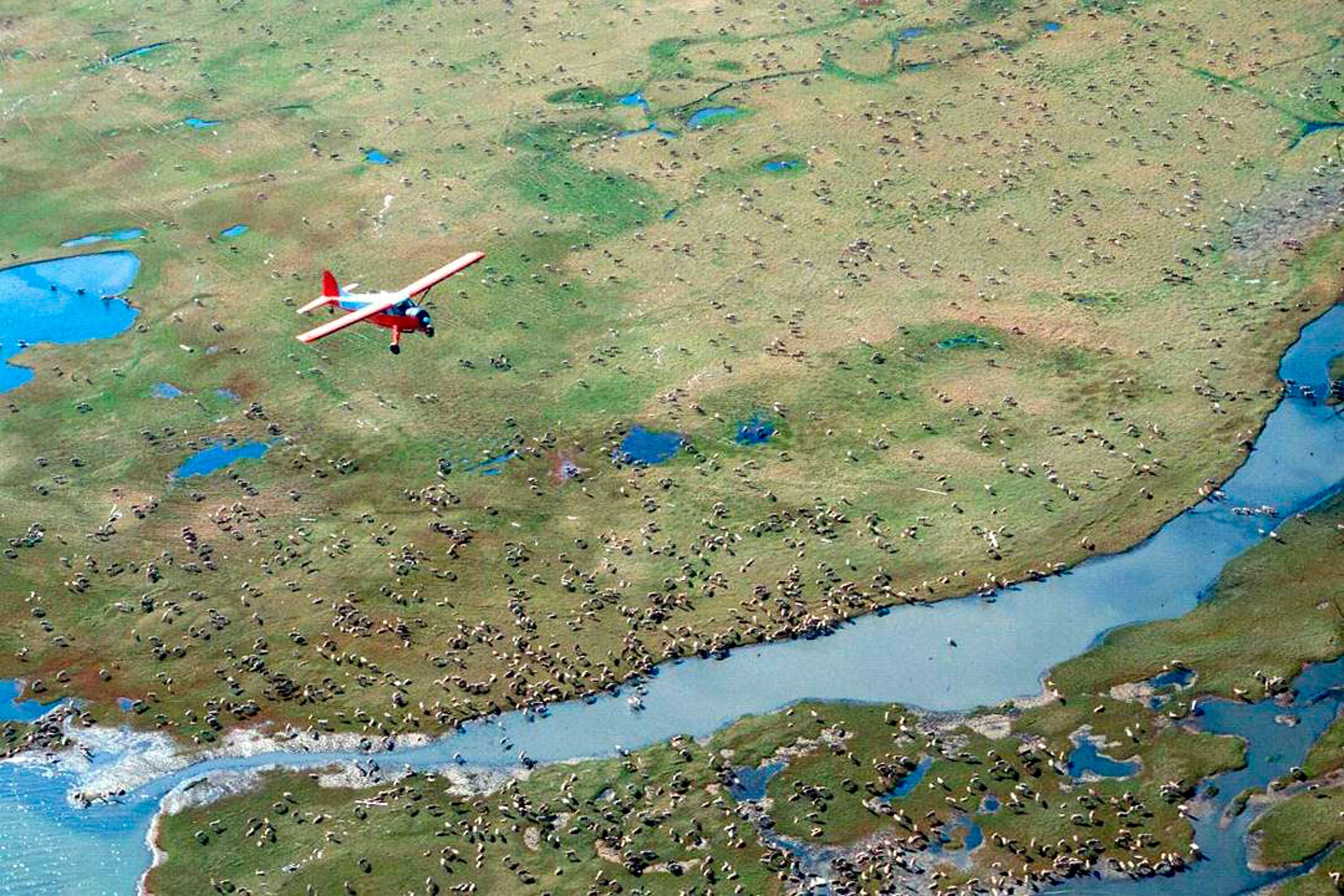By Mark Thiessen
The Department of the Interior on Monday approved an oil and gas leasing program within Alaska's Arctic National Wildlife Refuge, the sprawling home to polar bears, caribou, and other wildlife.
Secretary of the Interior David Bernhardt signed the Record of Decision, which will determine where oil and gas leasing will take place in the refuge's coastal plain, a 1.56 million-acre swath of land on Alaska's north shore with the Beaufort Sea.
"Congress directed us to hold lease sales in the ANWR Coastal Plain, and we have taken a significant step in meeting our obligations by determining where and under what conditions the oil and gas development program will occur," Bernhardt said in a statement.
Congress approved the program in 2017, and the Interior's Bureau of Land Management in December 2018 concluded drilling could be conducted within the coastal plain area without harming wildlife.
"Today's announcement marks a milestone in Alaska's forty-year journey to responsibly develop our state and our nation's new energy frontier," Gov. Mike Dunleavy said.
The Republican governor called Monday's decision "a definitive step in the right direction to developing this area's energy potential," which he estimated at 4.3 and 11.8 billion barrels of technically recoverable oil reserves.
Environmental groups immediately assailed opening the refuge and promised litigation.
"The Trump administration's so-called review process for their shameless sell-off of the Arctic Refuge has been a sham from the start. We'll see them in court," said Lena Moffitt with the Sierra Club's Our Wild America campaign.
"Our climate is in crisis, oil prices have cratered, and major banks are pulling out of Arctic financing right and left," Adam Kolton, Executive Director at Alaska Wilderness League, said. "And yet the Trump administration continues its race to liquidate our nation's last great wilderness, putting at risk the indigenous peoples and iconic wildlife that depend on it."













